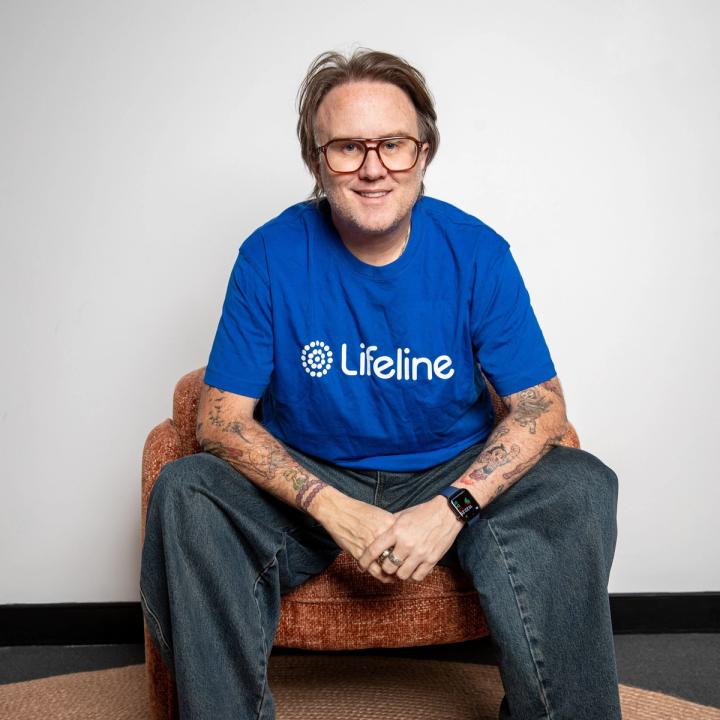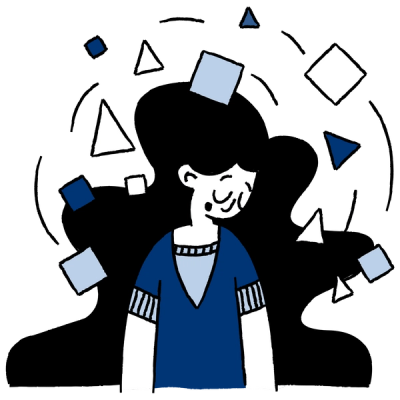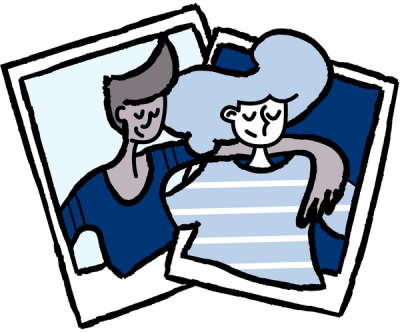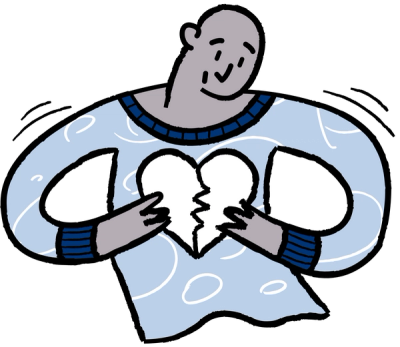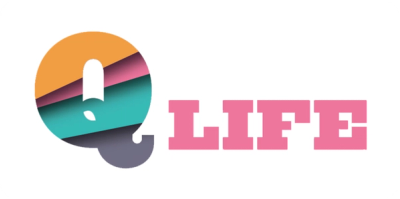In this episode, we’re joined by Jonathan Moran. Jonathan grew up facing significant challenges; childhood sexual abuse, a fractured relationship with his father, and a mum he adored who lived with bipolar and later died of cancer. Suicidality has been a constant thread in his life, and in his early 20s, after a confronting encounter with his abuser and the end of a relationship, he made a serious suicide attempt and was hospitalised.
Now 47, Jonathan is a twin, a brother, and an uncle, deeply connected to his family. He believes in the power of a good GP and speaks openly about the barriers to accessing mental health care. Today, he shares his darkest moments, what helped him through, and the daily practices that keep him grounded.
Listen here
Read the transcript
Carla (Host):
[00:00:00] Today on Holding On To Hope, we're joined by Jonathan Moran also known as JMo. Jonathan grew up facing significant challenges: childhood sexual abuse, a fractured relationship with his father and a mum he adored who lived with bipolar and later died of cancer. Suicidality has been a constant threat in his life and in his early 20s, after a confronting encounter with his abuser, and the end of a relationship, he made a suicide attempt and was hospitalized.
[00:00:29] Now 47, Jonathan is a twin, a brother and an uncle, deeply connected to his family. He believes in the power of a good GP and speaks openly about the barriers to accessing mental health care. Today he shares his darkest moments, what helped him through, and the daily practices that keep him grounded. Jonathan, hello, welcome. Thank you for being here.
Jonathan Moran (JMo):
[00:00:52] Thank you for having me. I feel very honored to be interviewed by you.
Carla (Host):
[00:00:55] Well, we're going to start at the beginning. Childhood, early years. Can you take us back there? What was happening for you? What challenges you faced growing up?
Jonathan Moran (JMo):
[00:01:06] I grew up in a single parent household to an amazing mother and I have a twin sister. It was very loving and very caring. We didn't have a lot of money.
[00:01:24] Our father wasn't in the picture. My mum and my father, my biological father were dating. She fell pregnant and for whatever reason he chose not to be part of our life, and so mum raised us by herself.
[00:01:40] And so having one child as a single parent is enough. Having twins as a single parent is a lot.
Carla (Host):
[00:01:49] It's a lot.
Jonathan Moran (JMo)
[00:01:50] And my mum was a superwoman, but she also struggled herself. My mum had a breakdown, her first breakdown when I was in high school. That's when she was diagnosed with bipolar. And so we didn't necessarily have, I always felt like I didn't have the childhood where... Mum would 'bake the biscuits' and do that sort of stuff and pick us up from afternoon sports.
[00:02:17] She worked full time. We would look after ourselves after school and mum would come home at seven o'clock or whatever time and then we would have dinner and mum had, there was a lot of darkness around mum's illness.
[00:02:30] And I remember there was a lot of tears, and if there wasn't tears, there was sleeping. That's what she needed to do. And there was no doubt ever that mum loved us, and we loved her and she was the best she could be, but she struggled and was in and out of hospital having ECT and so on. Like it was... It was what it was.
Carla (Host):
[00:02:56] And from those early years, you also talk about having some suicidal thoughts at a pretty young age.
Jonathan Moran (JMo):
[00:03:04] So we grew up in Sydney for our earlier years. My mum was from Sydney, but then we moved to Canberra when I was nine. And in year three, four, year four was the first time I attempted suicide.
Carla (Host):
[00:03:19] Wow. That's so young.
Jonathan Moran (JMo):
[00:03:20] So thinking about it, I don't think it was a 'real' attempt. I'm not trivialising it, because I was in pain, but it was a, 'I need help' situation. And it was to do with some stuff that was going on with my school.
[00:03:38] I had a teacher, that was later proven to have been, abusive, physically and mentally, to myself and two other students, and was not perpetrating the abuse in front of other people. So it just played to the fact that I was crazy.
Carla (Host):
[00:04:01] So sort of being gaslit.
Jonathan Moran (JMo):
That was the first year that my twin sister and I had been in separate classes every, up until year three, we'd been in the same class. So year four was different. That's what led me to contemplate suicide at that young age, whatever it was at, in year four.
Carla (Host):
[00:04:21] Yeah. And those thoughts, feelings continued. Did you have any help at that stage or?
Jonathan Moran (JMo):
[00:04:28] I moved schools. We weren't religious and I went to a Catholic school. My sister stayed in the public school cause she had her friends in her class. And so I spent that year six terrified because it was two suburbs away, a suburb away that everyone would know that I was the crazy kid from the public school down the road.
[00:04:49] So I didn't feel like I fit in because I wasn't religious. I didn't feel like I fit in. I didn't have the history with any of the other kids in my class. And it was challenging.
Carla (Host):
[00:05:00] That's a lot for a little kid to carry around and manage. So if we pick up in the adult years, in your early twenties, you faced an abuser. That's a massive thing. And had a relationship breakup, and a first suicide attempt that, that meant you had some time in, in hospital.
Jonathan Moran (JMo):
[00:05:19] Yeah. Can you talk us through that time in those high school years from year eight, so 13 or so I was sexually abused and that all culminated, as you said, in me approaching, well, forced, forced to approach my abuser in my late teens, early twenties and going through a breakup, my first breakup with a guy. And that's when I tried to kill myself.
Carla (Host):
[00:05:44] And what were those, yeah, those thoughts swirling for you at that time? What was going through your mind?
Jonathan Moran (JMo):
[00:05:51] I just thought the world would be a better place if I wasn't in it. And I wanted the pain to stop. I wanted my brain to stop. I didn't want to be in people's way.
Carla (Host):
[00:06:04] And that attempt led to hospitalization. What do you remember about that in the days after?
Jonathan Moran (JMo):
[00:06:12] Can I be brutally honest? I loved it. Because it was the first time feeling... Loved, while being completely in a really, in a really dark place. I felt some peace... for some of it. A lot of it, I felt shame, embarrassment, fear.
[00:06:33] And I didn't want to leave. I would have been happy to stay there for a long time.
Carla (Host):
[00:06:37] Can you say a bit more about shame and embarrassment? What was happening for you around those feelings?
Jonathan Moran (JMo):
[00:06:43] When your mind is clearer and you're not in a moment where you want to take your life or you are thinking about suicide, the pain that that will cause the people that you love. And I would never want to put the people that I love through that pain. And so that is the thing that has kept me alive.
[00:07:07] At times where I have been at my darkest and that was one of them. And there was other times around that period and more recent years. I've, I've experienced suicidal ideation, but I've never been to the point that I would.
Carla (Host):
[00:07:19] So reaching out for help, Jonathan, there's been a number of times in your life you've done that. Whereabouts were you? Were you really at the depths of struggling? Were you, were you connected with other things that weren't working?
Jonathan Moran (JMo):
[00:07:37] It's changed and it's been an evolution. Where I am today is very different to where I was 20 years ago. And so back then, I didn't know how to handle it. I hadn't had therapy. I had therapy, but not the level of therapy... I realized recently it was a wake up call to me that I do need to be more in tune with what's going on in this. I am very good, I would say, and I don't give myself compliments lightly, I am very good at checking in with myself and acknowledging that I'm not in a good headspace.
[00:08:09] But sometimes your mind plays tricks on you. So I thought I was in a much better headspace recently and that's when I slipped and I needed to really quite... It was a crisis situation for me. It wasn't a suicidal situation, but it was a crisis situation. And I have all the checks and balances where I rang my GP, made the therapist appointment, did all of that, I've got an appointment with my psychiatrist just to double check on my medications. And that's what
[00:08:41] I do now. But back in the day I had to hit rock bottom before I could work out where to go from there.
[00:08:47] And it's taken me a lot of therapy, a lot of conversations and a lot of help from amazing people to get to this point. We are also in a different time where opening up about where your head is at is much safer now than it used to be. I've lived through times where I have been discriminated against because I've been open about my mental health.
[00:09:21] My mother, my late mum, was deeply discriminated against within her workplace for being the mad woman because she said, yeah, I've, I'm in hospital cause I've got bipolar or I need to take time off sick leave.
[00:09:37] I'm taking sick leave, not because I've got a cold, but because I have mental health stuff.
[00:09:41] Yep. And this was 20 years ago, 30 years ago. And that really hurt her. And it, and it gave people permission to go, right. So you're not calling out a situation. You're just crazy. So then they feel better about themselves. So that can also be a barrier for people to be open about where they're at. And that's why I'm such a fighter. And I don't call myself a survivor. I call myself a warrior, because I'm going to keep fighting for the, for people to have the space to do, to speak up when they're not in a good place.
[00:10:13] And if I hear people talking about mental health in a way that is not safe or makes it a darker place or makes it an unhelpful way, then I will hopefully have the strength to speak up. And that's why I am reclaiming the word mental. That's why my podcast is called mental as anyone. Mental to me is something to be celebrated.
[00:10:40] Some people might find that offensive and I'm, I'm not saying... You know. To each their own.
[00:10:45] For me, there is great strength in that. When I was a young man coming out, queer was an offensive word. Queer was odd, different, other. So I want mental, crazy, whatever. Call me cuckoo. I don't care.
[00:11:07] I am. And isn't that fabulous when I'm in a strong point. And, and even when I'm not feeling my strongest, I like these words and I had t-shirts made with mental on them and I wear them.
Carla (Host):
[00:11:20] So you talked about wanting to be small and just survive high school. You're not a small person now. You're big and you're forthright in talking about mental wellness, using the terms that you wanted to use. When did that turn happen for you?
Jonathan Moran (JMo):
[00:11:39] It's constantly happening. And it is again, a constant check-in process. And there are days where I feel, I still feel like it's a challenge.
[00:11:48] I get up in the morning and I see my clothes as a metaphorical armor as I take on the world.
[00:11:54] Inside, I'm the life of the party. I walk into a room and I'm loud and I'm fun and I'm whatever.
[00:11:59] So it comes as a surprise to people often that I do struggle with my mental health. They are genuinely surprised. And I hear that a lot. There's two things I've made a decision about in life. When I came out at 17 as gay, I made a decision that I would never hide my sexuality for fear or favor, even at times that it's difficult. Even at times that you're... I've been bashed for being gay. I've been assaulted, whatever you want to say. I've been abused on the street, but I will hold my head high because I have to, even when it's tough.
[00:12:31] Now there was a woman, a late great woman by the name of Charlotte Dawson, who was a TV presenter and she was a warrior and she was a great friend of mine. She delivered great strength to me through our friendship. And I hope that I was there in a small part for her, but she was very vocal about online trolls, mental health struggles. She took her life. On the day that she took her life, I was working at the Sunday Telegraph in Sydney at my desk.
[00:13:08] And we got confirmation that it was Charlotte Dawson that had died. And I'm the entertainment journalist bashing out the story, putting the background in there, knowing her niece and family and having worked with this woman for years and, and she's a friend. That was the moment that I first revealed my mental health life publicly.
[00:13:43] And I made that decision then that I would never hide my mental health ever be for fear or favor in the same way that I haven't with my sexuality. I went on national television the next morning because I was a regular and still do stuff with the morning show on Channel Seven. And there was a lot of media coverage about her passing and I spoke about the immense devastation I felt and so on.
[00:14:14] But it was a very, it was a very real moment that I was very public about that. They're two of the guiding forces in my life that I have as a compass and I try and live by those things as best I possibly can.
Carla (Host):
[00:14:31] What a lovely tribute to losing a friend to take up the mantle, to be out and non-wavering. Well, before that I was fearful because of my mum and having
Jonathan Moran (JMo):
[00:14:45] seen my mum suffer at, in her workplace for, for being so open about her mental health. So my friends knew, I didn't hide it from people, but putting it out there, writing a story, Charlotte Dawson's death has deeply affected me because she helped me in my darkest of days.
[00:15:13] I've been suicidal. This is a very public thing to do at a time that people weren't talking about these things.
Carla (Host):
[00:15:23] You've also talked about the importance of having a GP that you, you trust and you can work with. What makes that relationship work for you?
Jonathan Moran (JMo):
[00:15:31] My doctor, she's my GP and without her, I don't, I wouldn't be here. There was a period where things went really bad 10, 12 years ago. My mum had died. She died at 56 of metastasised breast cancer. Losing mum was one of the hardest moments of my life. If not the hardest. I would give anything a million times over. I would do anything to have her back for 30 seconds, just to hug her and tell her how much I love her.
[00:16:06] I miss her immensely. There's a hole in my heart gaping hole, deep hole. And I say this to friends when they lose to loved ones or if people, the pain doesn't ever go away. It becomes easier to live with. I had a very close relationship with my mum. My mum, my sister and I, and Judy, her best friend, were a family unit. And without mum in it, it's challenging. It's challenging today.
[00:16:41] It'll be challenging tomorrow. Losing her when I was 30, I spiralled.
[00:16:46] I was taking a lot of drugs. On one bender, one of many benders, Judy, who's like a second mum to me, she came with me to Jane, and we sat down, and I wasn't strong enough mentally to really articulate everything. I was coming down, and she said to me, you can't... you have a choice. You can't drink. I just didn't have moderation. My doctor said let's acknowledge that and let's get you some help.
[00:17:17] So I saw her, well, she referred me through to a psychiatrist who we did some intensive treatment, assessed my medications and I had to wean on to some pretty heavy duty meds to get me through that period. And it saved my life.
Carla (Host):
[00:17:36] What are the challenges that are still there for you in navigating mental health care?
[00:17:42] What tips would you have for people?
Jonathan Moran (JMo):
[00:17:43] Sometimes things creep up on you and you don't realise. So I've just released my book, Mental As Anyone, a toolkit for surviving and thriving on the chaotic rollercoaster of life.
[00:17:53] And I have a podcast that I record here at this studio called Mental As Anyone.
[00:17:58] The idea being that we're all dealing with our own stuff. No matter how much – success, fame, fortune, whatever, isn't a barrier to your own struggles. And recently, promoting my book, talking about myself, it can take its toll. And so, it crept up on me. I wasn't, I didn't, I know that my mental health is a constant something I need to keep on top of.
[00:18:26] And I, through being busy and all of that stuff, I wasn't on top of it. And I went on a book tour and I didn't realise how hard that would hit me. And so, over the last few weeks, I've been seeing my psych, having therapy. And instantly, after that first session, it was like this huge weight had lifted. I thought I was going crazy.
[00:18:57] When I go to bed, I have this thing I call growing pains, but it's from when I was a kid where you kind of have aches and pains and you, I don't know what other people call it. And it's, my body is restless leg syndrome, whatever, but it's everywhere. Like even right now I can feel it on my shoulder or my elbow or whatever. It's this weird feeling. And I genuinely thought I'm imagining this. My head is like, what's going on? And in seeing my therapist, he explained to me this thing about somatic reactions.
[00:19:31] Anyway, it is a real thing when you have, when you feel nauseous or when your stomach drops or you get nervous or butterflies in your stomach, things like that. And so I felt validated by that. So seeing him, talking to him about it, I've started putting meditation music on at night, which I never did before, it helps me shut down my brain and I've been falling asleep quicker.
Carla (Host):
[00:19:51] It sounds like you're still looking for things to help. It's not a set and forget journey for you that there's...
Jonathan Moran (JMo):
[00:20:00] I don't think it is for anyone. I don't think it's set and forget anything.
[00:20:03] It's constantly having to be aware of where we're at, where our head's at and what's going on.
[00:20:10] I ask people on my social media, what are you on a one to 10 of mental health today? And how do you get yourself to lift a number in that?
Carla (Host):
[00:20:18] What advice would you give to someone who's struggling and they just want to take one small step? It's really hard to be honest about things if you're not being honest with yourself too.
Jonathan Moran (JMo):
[00:20:29] And if you're able to do that and be honest with yourself about how you're really feeling, and I'm not judging anyone that isn't because I've lied to myself many times, then hopefully you might be able to say to the next person, yeah, 'hey, how are you today?' Be willing to hear the answer of what they're saying. But when you're being asked that, give them a truthful answer. So it just fosters that deeper conversation, rather than just a cursory thing. Hopefully you feel a little bit lighter and you're able to say–
[00:21:04] 'Yeah, you know what? I'm a five out of 10.' I give it a number because it's easier to say that for me than it is to say, I feel crap. Be kind to yourself. It's a bit of a mantra that I've been saying recently. Being kind to yourself because in my brain, it can be a really harmful place. When I look in the mirror, I don't say nice things about myself often. And so if I could give a piece of advice to someone is try and be kinder to yourself, kinder.
[00:21:37] Try and give yourself some grace and some space to acknowledge that life can be tough.
Carla (Host):
[00:21:46] Are there other things that are important for you to maintain wellness?
Jonathan Moran (JMo):
[00:21:54] The things that I have to have are eight hours sleep minimum, eat healthily as I possibly can, exercise, those sorts of things.
Carla (Host):
[00:21:58] They sound like really good building blocks.
Jonathan Moran (JMo):
[00:22:06] Basic things to provide nutrition for my body and my head. Take time out. I'm about to head overseas for two weeks where I won't have access to any social media at all. I don't remember the last time I had that. So I will not have Instagram. I will not have TikTok, Facebook. I've done some retreats, some health retreats. I've done some meditation retreats. And I'm not a mung beans and hippy dippy dude sitting around singing kumbaya. That's not me.
[00:22:32] A friend of mine rang me once and said, do you want to come and do a yoga retreat in Romania?
Carla (Host):
[00:22:39] That's quite a challenge.
Jonathan Moran (JMo):
[00:22:40] I laughed at her and said, and I hung up the phone and said, absolutely not. And then five minutes later, I rang her and said, you know what? Let's bloody do it. Because it was something I would never do. And that moment was one of the moments that changed my life. It gave me the opportunity to sit in my body and be and breathe. And breathing is hugely important. People say it and you're like, 'yeah, of course I breathe. I breathe every day. I'm breathing.' But circular breathing, focusing on your breathing, slow breathing, deep breathing, all of that sort of stuff is really important to me.
[00:23:14] So maybe I am one of those mung bean hippy dippy dudes. I turn off my phone. In a dream world, I would turn off my phone half an hour before I went to bed. But that's something I did about a decade ago because I was a person that checked my Instagram, my Facebook, my WhatsApp, my text messages, and my email on the multiple times that I would wake up during the night.
[00:23:37] And so every time I would do that, it would start my head again and I would just be so on. So that's a huge thing that I do. They're only small things, but they make big differences to my life.
Carla (Host):
[00:23:48] Yeah. I wanted to thank you for this conversation, for this deeper conversation.
Jonathan Moran (JMo):
[00:23:52] I hope that my small, tiny contribution into this space will make some sort of a difference. And if someone's listening at home or in the car to this very special podcast and the work that Lifeline does is hugely important, then if it resonates with them in one tiny, tiny way, we need to do something.
[00:24:17] And this is doing something. You're doing something.
Carla (Host):
[00:24:21] Thanks so much for this conversation today, Jonathan. Really appreciate your time and you sharing your story and your insights and have a wonderful holiday.
Jonathan Moran (JMo):
[00:24:32] Yahoo!

